|
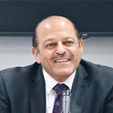 Ambassador Sujan R. Chinoy Ambassador Sujan R. Chinoy
Director General
Manohar Parrikar Institute for Defence Studies and Analyses, New Delhi
Ambassador Sujan R. Chinoy is the Director General of Manohar Parrikar Institute for Defence Studies and Analyses (Manohar Parrikar IDSA), New Delhi. A career diplomat of the Indian Foreign Service from 1981-2018, he was India’s Ambassador to Japan and Mexico.
A specialist with over 25 years of experience on China, East Asia and the Asia-Pacific, he served in Indian Missions in Hong Kong, Beijing, Riyadh, Shanghai and Sydney. He also served as India’s representative to the First Committee at the United Nations in New York. At Headquarters, he served as Director (China) as well as Head of the Expert Group of Diplomatic & Military Officials tasked with CBMs and boundary-related issues with China.
He also served on the Americas Desk and as Officer on Special Duty (Press Relations). On deputation for four years with the National Security Council Secretariat under the Prime Minister’s Office, he worked on internal and external national security policy and anchored strategic dialogues with key interlocutors around the world.
He is fluent in English and Chinese (Mandarin), and conversant in French, Spanish, German, Japanese, Arabic, Urdu and French-Creole. He schooled at the Rajkumar College (Rajkot), read English Literature at the Maharaja Sayajirao University in Vadodara and gained his Master of Business Administration from Gujarat University. He has an advanced Diploma in Chinese (Mandarin) from the New Asia Yale-in-China Chinese Language Centre of the Chinese University of Hong Kong.
|
|
|
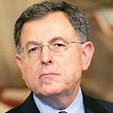 Mr. Fouad Siniora Mr. Fouad Siniora
Former Prime Minister of Lebanon
Fouad Siniora is the former Prime Minister of Lebanon (2005-2009) and former head of the Parliamentary Future Block. He has been a member of Lebanese Parliament for around a decade (2009-2018). Fouad Siniora's government was constitutionally responsible for the presidency of the Republic until President Michel Sleiman took over office on May 25, 2008.
Fouad Siniora was born on April 14, 1943 in Saida/Sidon (45 km south of Beirut) in a Sunni family. He graduated with Master in Business Administration from the American University of Beirut. In 1970s, he worked with the Citibank and also taught at his alma mater and at the Lebanese University. He joined the Audit Committee of the Lebanese Central Bank in 1977. Later in 1982, he was he was recruited by the Lebanese-Saudi businessman Rafiq Hariri to manage and further expand his economic empire. At the end of the Lebanese civil war, Hariri became the Prime Minister and appointed Siniora as his Finance Minister (1992-1998, 2000-2004). Fouad Siniora was commissioned by President Émile Lahoud on June 30, 2005 to form the government. It was the first government to be formed after the Syrians left and the first to involve Hezbollah. On July 27, 2006, Siniora presented his 7-point plan to end the devastating Lebanese-Israeli conflict. This resulted in a resolution of the UN Security Council on August 12, 2006, which led to a permanent ceasefire. Apart from politics and finance, Fouad Siniora is known for his ardent interest in Arabic literature and poetry.
|
|
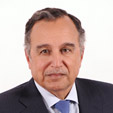
Prof. Nabil Fahmy
Former Foreign Minister of Egypt
Founding Dean of the School of Global Affairs and Public Policy
Founding Dean of the School of Global Affairs and Public Policy, Nabil Fahmy is a career diplomat (1976-2011) and the former Foreign Minister of Egypt (July 2013 - June 2014) during which he steered the course of Egypt’s diplomacy during a time of immense challenge. While Foreign Minister, he formulated a strategy to reorient Egypt’s Foreign Policy, ensuring that Egypt had numerous foreign policy options both regionally and globally.
During his distinguished diplomatic career covering three decades, Fahmy served as ambassador to the United States (1999-2008) and Japan (1997-1999) as well as held numerous government and international positions. His work has focused on international and regional security, disarmament and non-proliferation, conflict resolution and Arab-Israeli diplomacy. He was also the Chairman of the United Nations Advisory Board on Disarmament Matters, and the Vice Chairman of the United Nations General Assembly’s first committee dealing with disarmament and international security. He was also a member of the Egyptian Delegation to the 1991 Madrid Peace Conference; the Review Conferences of the Treaty on the Non-Proliferation of Nuclear Weapons; the Committee on Principles in the United Nations Conference on Promoting International Cooperation in the Peaceful Uses of Nuclear Energy and many other multilateral events.
Nabil Fahmy also founded the School of Global Affairs and Public Policy (GAPP) at The American University in Cairo (AUC) in 2009. Its programs are internationally and domestically accredited. And the school has become an invaluable Middle East voice of stellar caliber on topical issues of Public Affairs, Law, Journalism, as well as studies on the Middle East, Refugees, and Gender and American Studies.
|
|
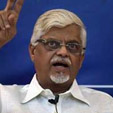
Dr. Sanjaya Baru
Distinguished Fellow
Manohar Parrikar IDSA
Dr. Sanjaya Baru is former Media Advisor to Prime Minister and currently Distinguished Fellow, Manohar Parrikar Institute for Defence Studies and Analysis, New Delhi. He has been editor of India's major financial newspapers, The Economic Times, Financial Express and Business Standard.
He was Media Advisor to Prime Minister Manmohan Singh and Director for Geo-economics and Strategy, International Institute of Strategic Studies, London. He was professor of economics at University of Hyderabad, Indian Council for Research on International Economic Relations and the Lee Kuan Yew School of Public Policy, Singapore.
He was Secretary-General, Federation of Indian Chambers of Commerce & Industry. He was member of India’s National Security Advisory Board in 1999-2001 and member of the Governing Board of the Centre for Policy Research.
He is Founder Trustee, Forum for National Security Studies, India. He was also member India-ASEAN Eminent Persons Group in 2010. His publications (Books) include The Strategic Consequences of India’s Economic Rise, India and the World: Essays on Geo-economics and Foreign Policy, The Accidental Prime Minister: The Making and Unmaking of Manmohan Singh and 1991: How PV Narasimha Rao Made History and The Bombay Plan: A Blueprint for Economic Resurgence (2018).
|
|
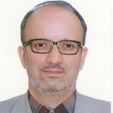
Dr. Mohammad Hassan Khani
Associate Professor of International Relations Imam Sadiq University (ISU), Tehran
Dr. Mohammad Hassan KHANI is an Associate Professor of International Relations at Imam Sadiq University (ISU) in Tehran. He received his PhD from Department of Peace Studies from Bradford University, England. During his academic career he has acted as Head of Department, Deputy Dean of Faculty, and Director-General of Research Affairs at ISU.
He has also been teaching as a guest-lecturer at other Iranian universities including Tehran University and School of International Relations. In 2016, he joined the Global Challenges Fellowship Program as a Senior Fellow hosted by Institute for Advanced Study at Central European University in Budapest and Global Public Policy Institute in Berlin. He is Member of Editorial Board of Central Asia Review Quarterly and also Member of Editorial Board of Political Knowledge Quarterly.
He is a founding member of Iranian Political Science Association and also a member of Iranian International Relations Association. His research interests include areas such as Theories of International Relations, Iranian Politics & Foreign Policy, International Organizations, Regional Integration and Regionalism, Middle East, and Central Asia.
He is the author of numerous books, chapters in books, and academic papers in Persian and English. His views and analyses on regional and international affairs have been reflected in the form of articles, and interviews with: Washington Post, Los Angeles Times, Reuters, NPR, ABC News, CNN, BBC, World, Russia Today, China Central TV, Press TV, Sahar TV, Al-Aalam, Japan Times, Al-Ahram, As-Safir, Hurriyet, and many Iranian academic journals, weekly magazines & daily newspapers.
|
|
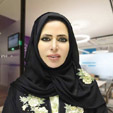
Dr. Ebtesam al-Ketbi
President of the Emirates Policy Center
Abu Dhabi, the United Arab Emirates
Dr. Ebtesam al-Ketbi is the President of the Emirates Policy Center (EPC), which she founded in Abu Dhabi, the United Arab Emirates in September 2013.
The EPC undertakes the task of studying and foreseeing future regional and international geopolitical projects and their impact on the Gulf region based on the region’s self-perception of its concerns and interests. The center also focuses on exploring current and future issues that have an impact on the security of the UAE and the region as a whole. The EPC provides strategic analysis and policy papers on these issues that serve the UAE and Gulf governments. The center is considered now as one of the most renowned think tanks in the region. Abu Dhabi Strategic Debate, which is organized annually by the EPC, has also become one of the key platforms for dialogue in the world to discuss regional and international security.
In recognition of her role as a leader of one of the most important think tanks in the Arab world and the great respect she enjoys as part of the distinguished elite, not in the UAE only, but also in the Gulf region as a whole, Dr. Ebtesam al-Ketbi was appointed in 2015 as member of the Consultative Commission of the Cooperation Council of the Arab States of the Gulf (GCC). She was also chosen among 50 Most Influential Women in the Arab World by Arabian Business magazine in its July 2018 issue, as she is the first woman to lead a think tank in the Arab world.
Before she founded the EPC, Dr. Ebtesam al-Ketbi was a professor of political science at the United Arab Emirates University. She has also held several posts, such as the General Coordinator of the Gulf Development Forum, has served as member of the Executive Committee of the Arab Association for Political Science, has been member in the board of trustees in the Center for Arab Unity Studies, the Arab Thought Foundation, and in the Arab Anti-Corruption Organization. Dr. Ebtesam al-Ketbi has published a number of research papers on Gulf Security, US-GCC relations, and War on Terrorism. She holds a PhD in political science from Cairo University.
|
|
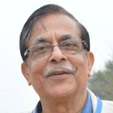
Professor Girijesh Pant
National Fellow of Indian Council of Social Science Research
Symbiosis International University Pune
Prof. Girijesh Pant is presently National Fellow of Indian Council of Social Science Research at Symbiosis International University, Pune.
Former Dean of School of International Studies at Jawaharlal Nehru University, India, Prof. Pant has also served as Vice Chancellor at Doon University Uttarakhand and GGD University at Bilaspur. He is also associated with higher academic bodies like University Grant Commission as member of Accreditation Advisory Council, ICSSR project evaluation committee and Indian Council of World Affairs.
He has recently been appointed as Member Academic Committee of School of International and Area Studies, Tsinghua University, China. His academic interest includes Development Studies with focus on India, West Asia, Political Economy of Gulf Countries, Political Economy of International Energy, India Energy Security, India’s Energy Relations and India’s Economic Relations with GCC countries.
Awarded Lifetime Achievement Award by Venkateshwara University, Tirupati, he has been Sr. Fulbright Visiting Scholar, University of Illinois, USA. Traveled widely and participated and contributed papers in number of national and International conferences, journals and books, he is presently working on energy transition with reference to India.
|
|
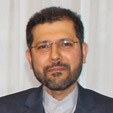
Saeid Khatibzadeh
Vice President for Research and Director General
Institute for Political and International Studies (IPIS)
Saeid Khatibzadeh is currently Vice President for Research and Director General of the Institute for Political and International Studies (IPIS).
He has worked as Senior Adviser to the Deputy Foreign Minister and President of the IPIS (2018-2019), Acting Director General of IPIS (2017-2018), Head of the IPIS Regional Office in Berlin (2013-2017), Director of Publication Department of IPIS (2011-2013) and IPIS Resident Representative in Canada (2007-2011).
He has been also Editor of the Iranian Journal of International Affairs (2002-2006) and has published and conducted numerous articles and research projects in both Persian and English. He has joined the Ministry of Foreign Affairs of Iran in 1999.
|
|

Petr Kortunov
Program Assistant
Russian International Affairs Council
Petr Kortunov is program assistant at the Russian International Affairs Council. His academic interests lie in the Middle Eastern region, particularly Iran’s international standing and both peaceful and weapon use of nuclear power in the region.
Born 1994, he obtained a bachelor's degree at the MGIMO University in International Law, specializing in financial law. He earned his Master's degree in International Financial Law at the MGIMO University and also obtained a Master's degree in International Commercial Law at the University of Reading.
|
|
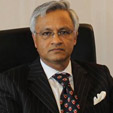
Ambassador Niraj Srivastava
Former Indian Ambassador Denmark, Uganda
Niraj Srivastava is a former Indian diplomat who has been Ambassador of India to several countries including Denmark and Uganda. He joined the Indian Foreign Service in 1983.
Srivastava was educated in India and abroad. He spent a sabbatical year at Oxford University, U.K., where he studied international relations, international law, and international trade and finance. He graduated with honors in 1988.
During his career spanning about 33 years, Srivastava has served in Indian missions in several countries around the world, including Syria, the United States, Libya, Saudi Arabia, Canada, Uganda, and Denmark. He has also held several positions in the Ministry of Foreign Affairs in New Delhi.
Srivastava took another sabbatical year during 2001-02 at Georgetown University, Washington D.C., where he taught a course on international politics of South Asia to Sophomores. He was Associate Faculty at Georgetown.
Srivastava retired from the Indian Foreign Service in November 2015. He now lives in New Delhi and, among other things, writes on issues relating to international affairs. He also appears frequently on television programs. He has written extensively on the war in Syria and US policy in the Middle East.
|
|
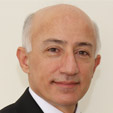
Professor Dlawer Ala’Aldeen
Founding President
Middle East Research Institute (MERI)
Professor Dlawer Ala’Aldeen is the Founding President of the Middle East Research Institute (MERI, www.meri-k.org), based in Erbil, Kurdistan Region of Iraq. He is a former Minister of Higher Education and Scientific Research in the Kurdistan Regional Government (2009-2012) and Professor of Medicine in Nottingham University, UK.
Ala’Aldeen has long been engaged in capacity-building and nation-building projects in Iraq, and published extensively on the political and security dynamics, governance systems and democratization in the Middle East.
His most recent books include, Nation-Building and the System of Governance in Kurdistan Region (2013); and State-Building: A Roadmap for the Rule-of-Law and Institutionalization in Kurdistan Region (2018).
|
|
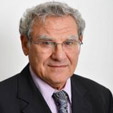
Professor Efraim Inbar
President
Jerusalem Institute for Strategic Studies
Prof. Efraim Inbar is President of the Jerusalem Institute for Strategic Studies (JISS). He was Professor in Political Studies at Bar-Ilan University and the founding Director of the Begin-Sadat (BESA) Center for Strategic Studies.
Prof. Inbar’s area of specialization is Middle Eastern strategic issues with a special interest in the politics and strategy of Israeli national security. He has written five books and over 100 scholarly articles.
Prof. Inbar holds a B.A. in Political Science and English literature from the Hebrew University and a M.A and Ph.D. from the University of Chicago. He served as visiting professor at Johns Hopkins University, Georgetown University, Boston University, as visiting scholar at the Woodrow Wilson International Center for Scholars, and the (London) International Institute for Strategic Studies.
A paratrooper in the Israel Defense Forces (IDF), Professor Inbar later served on the IDF Academic Committee of the History Department. He also served as President of the Israel Association of International Studies.
|
|
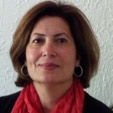
Dr. Randa Slim
Senior Fellow and Director
Program on Conflict Resolution
Middle East Institute, Washington DC
Randa Slim is a Senior Fellow and Director of the Program on Conflict Resolution and Track II Dialogues at the Middle East Institute in Washington DC, and is a non-resident fellow at the Foreign Policy Institute of the Johns Hopkins University School of Advanced International Studies (SAIS). She works and publishes on regional and international issues of the Middle East with an emphasis on Lebanon, Syria and Iraq.
A former vice president of the International Institute for Sustained Dialogue, Slim has also been a senior program advisor at the Rockefeller Brothers Fund, a guest scholar at the United States Institute of Peace, a program director at Resolve, and a program officer at the Kettering Foundation.
A former member of the Dartmouth Conference US-Russian regional conflicts taskforce, she was a member of the US-Russia mediator team in the Inter-Tajik Dialogue (1992-2000) and worked on conflict management activities in Tajikistan and the Ferghana Valley (2000-2006).
Currently, she organizes the Middle East Dialogue, a regional track 1.5 initiative focusing on political and security dynamics in the Middle East. She also co-moderates the US-Russia Middle East working group. Slim has also worked on the UN-mediated negotiations in Yemen as a consultant with the office of the UN Special Envoy for Yemen.
She holds a B.S. and M.A. from the American University of Beirut and a Ph.D. from the University of North Carolina.
|
|
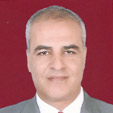
Dr. Wail Al Batrekhi
Minister Counsellor
Deputy Head of Mission
Embassy of the State of the Palestine
New Delhi
Dr Wail Al Batrekhi is Minister Counsellor and Deputy Head of Mission in the Embassy of the State of Palestine to India since 2016.
He has been the head of the media department in the Regional and International Organization in Foreign Ministry of the state of Palestine. He was Diplomat (Counsellor) in Embassy of the State of Palestine-Republic of Hungary in 2008-11.
He was Member of the international committee of World Festival for Youth and Student in (Cuba-1997, Algeria-2001, Caracas- 2005) and has been Vice President of world federation of democratic youth representing Palestine and Middle East North Africa region (1997-2007).
|
|
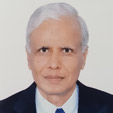
Ambassador V. P. Haran
Former Indian Ambassador to Syria
Former ambassador of India to Syrian and Bhutan, V.P. Haran is currently Independent Director at the Mangalore Refinery and Petrochemicals Ltd. He was Ambassador to Syria from January 2009 to December 2012, the most critical time that ushered in political tumult and upheaval in that country’s recent history. Thereafter, he became Indian Ambassador to Bhutan from January 2013 to July 2014.
V.P. Haran joined the Indian Foreign Service in 1980. He was posted in Moscow, Afghanistan, Sri Lanka and Belgium from 1980 to 2000. He was Deputy Permanent Representative of India to the World Trade Organization from 2000-03. He has been Joint Secretary [Administration], MEA, Delhi (2006-09).
He also worked for six years in TELCO and is presently at Tata Motors, Jamshedpur in their Accounts and Finance Department. He writes extensively, participates in seminars and gives lectures on foreign policy issues, particularly on Syria, West Asia, along with India’s neighborhood as well as the country’s trade policy.
|
|
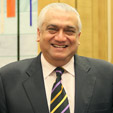
Ambassador Talmiz Ahmad
Former Indian Ambassador
Saudi Arabia, Oman and the UAE
Talmiz Ahmad is the former Indian ambassador to Saudi Arabia (2000-03; 2010-11), Oman (2003-04) and the UAE (2007-10). After retirement from Foreign Service, he had a stint of four years in the corporate sector in Dubai.
He is now a full-time academic and holds the Ram Sathe Chair for International Studies in Symbiosis International University, Pune.
He has authored three books including West Asian Politics: Reform in the Arab World (2005); Children of Abraham at War (2010), and The Islamist Challenge in West Asia after the Arab Spring (2013).
He writes regularly in the West Asian and Indian media on West Asian and Indian Ocean politics and economics, political Islam and energy security issues.
|
|
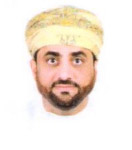
Dr Al Sheikh Abdullah Saleh Hilal Al Saddi
Strategic Director Staff,
National Defence College,
Sultanate of Oman
His Excellency Dr Al Sheikh Abdullah Saleh Hilal Al Saddi is the Strategic Director-Staff of the Strategic Director Staff, Oman. He has been the Sultanate of Oman’s ambassador to People’s Republic of China from 2007 till early 2020. He has also been the Dean of Oman’s diplomatic corps from 2013-20 and has been the Dean of the Council of Arab Ambassadors to China from January 2013-December 2019.
With diplomatic experience of over 30 years, Dr Al Sheikh Abdullah Saleh Hilal Al Saddi earned his doctorate degree in International Relations from Shanghai International Studies University in June 2012. He obtained his Master’s Degree from American University of Boston in France in 1995.
|
|
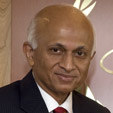
Ambassador Ranjan Mathai
Former Foreign Secretary of India
Ranjan Mathai joined the Indian Foreign Service in 1974. He served in Indian Embassies in Vienna, Colombo, Washington, Tehran and Brussels (1976-1994); and held several key positions in the Ministry of External Affairs of the Government of India, including as Joint Secretary, heading the Division responsible for India’s relations with Bangladesh, Myanmar, Sri Lanka, and the Maldives (1995-1998).
Mr. Mathai was Ambassador of India in Israel, Qatar, and France (1998- 2011). He was the Foreign Secretary of India for 2 years from August 2011 to July 2013.
After his retirement he was appointed High Commissioner of India to the United Kingdom (December 2013 to December 2015). Mr. Mathai is an Independent Director on the Board of HDFC Standard Life Ltd. Mr. Mathai completed his education with an M.A. in Political Science from the University of Poona (Pune) in 1974. He is an alumnus of the National Defense College in Delhi (27th Course, 1987).
He is an analyst and commentator on international affairs and energy and resource security.
|
|

Dr. Abdullah Bin Hamad Bin Abdullah Al-Salamah
Director General
Prince Saud Al Faisal Institute for Diplomatic Studies
Kingdom of Saudi Arabia
Dr. Abdullah Bin Hamad Bin Abdullah Al-Salamah is currently the Director General of Prince Saud Al Faisal Institute for Diplomatic Studies.
He was the Director General of Finance of Royal Commission for Jubail and Yanbu & Economic Advisor for H.H. the Chairman of the Royal Commission for Jubail and Yanbu. He also served as the delegated Deputy of the Royal Commission. He has also been General Supervisor for Royal Commission of college and instates for Jubail and Yanbu.
Dr. Salamah obtained Ph.D. from the renowned Durham University, United Kingdom in 1994. His doctoral thesis is Industry Development and Petrochemical Sector in Kingdom of Saudi Arabia, the role of the governmental policies - the Saudi Arabian Basic Industries Corporation (SABIC) as a study case. He received the Bachelors in Administration Science from King Saud University, and completed Masters in Economics at the Western Illinois University, United States of America.
Dr. Salamah has had a rich and diverse experience spanning 35 years at the Institute for Diplomatic Studies, Royal Commission and Ministry of Foreign Affairs, Saudi Arabia. His areas of expertise include strategic planning, management of industrial cities that specialize in petrochemicals, hydrocarbons, oil and gas, economic management, corporate management, educational development, project management, budgeting, planning and scheduling. Dr. Salamah has published many research papers and studies in internationally reputed journals. He has also presented key researches at various conferences, seminars and discussion panels across the globe. He is a member of Saudi Economy Society, British Society for Middle East Studies and Southern Economic Association in the United States of America, Member of Alinma Saudi Government Sukuk ETF Fund 2020.
|
|
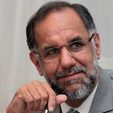
Ambassador Navdeep Suri
Distinguished Fellow & Director
Centre for New Economic Diplomacy
Observer Research Foundation, New Delhi
Navdeep Suri is Distinguished Fellow and Director, Centre for New Economic Diplomacy at the Observer Research Foundation. He has recently completed a distinguished 36-year career in the Indian Foreign Service, having served in India’s diplomatic missions in Cairo, Damascus, Washington, Dar es Salaam and London and as India’s Consul General in Johannesburg. He has also headed the West Africa and Public Diplomacy departments at the Ministry of External Affairs. He was India’s High Commissioner to Australia and Ambassador to Egypt and the UAE.
In a rare gesture, the President of UAE conferred on him the Order of Zayed II, the country’s second-highest civilian award. His innovative use of social media in public diplomacy in 2010 also received extensive recognition and two prestigious awards.
Proficient in Arabic and French, he has a Masters in Economics and has written on India’s Africa policy, on public diplomacy and on the IT outsourcing industry. His English translations of his grandfather Nanak Singh’s classic Punjabi novels have been published by Penguin as ‘The Watchmaker’ and by Harper Collins as ‘A Life Incomplete’ and ‘Khooni Vaisakhi’.
|
|
 Professor Ashwini K. Mohapatra Dean, School of International Studies (SIS), Professor Ashwini K. Mohapatra Dean, School of International Studies (SIS),
Chairperson, Centre for West Asia Studies,
Jawaharlal Nehru University, New Delhi
Professor Mohapatra is currently the dean of the School of International Studies (SIS) at JNU. In addition, he is also the chairperson of Centre for West Asia Studies. His area of interest lies in West Asian affairs, Peace and Conflict Studies, and Mediterranean Affairs. Over the span of 20 years in SIS (JNU), he has taught numerous students and delivered keynote lectures and addresses in various international platforms. He has been a visiting Professor at the Chou University (Tokyo) in June 2009 and a European Union Visitor to Brussels, in September 2009. Additionally, in June-July 2008, he was a visiting fellow at the Maison Des Sciences De L'Homme (MSH), Paris. His other visits abroad include civilian peace-keeping training at the Austrian Peace Research Centre, Stadtschlaining, Austria and Institute of International Studies, Geneva, participation in the Conflict Resolution Programme in Uppsala University, Sweden, and at the Peace Research Institute of Oslo (PRIO), Norway, State Guest of the Republic of Cyprus and Turkey.
Prof Mohapatra has participated in numerous conference, seminars and published several peer-reviewed articles in reputed journals. He has authored and co-authored books and contributed chapters in several books. A few of his notable publication includes Turkey's Transition to Liberal Democracy and Its Issue of EU Membership (published in India Quarterly Journal), Democratization in the Arab World: Relevance of Turkish Model (International Studies Journal), Bridge to Anatolia: An Overview of Indo-Turkish Relations published in The Turkish Yearbook of International Relations (Ankara), Arab and Turkish Responses to Globalisation (India Quarterly Journal), Radical Islam: Ideology behind Global Terrorism (India Quarterly Journal), Turkey's Search for Regional Role in Central Asia (International Studies Journal), among others.
|
|
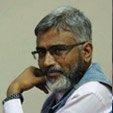 Professor P. R. Kumaraswamy Professor, Professor P. R. Kumaraswamy Professor,
Centre for West Asian Studies,
School of International Studies
Jawaharlal Nehru University,
New Delhi (India)
Professor P. R. Kumaraswamy teaches contemporary Middle East at Jawaharlal Nehru University, New Delhi since 1999. During 1992-1999 he was a research fellow at the Harry S Truman Research Institute for the Advancement of Peace, Jerusalem. His publications include Squaring the Circle: Mahatma Gandhi and the Jewish National Home (New Delhi: for ICWA, 2018); India's Israel Policy (Columbia University Press, 2010); Historical Dictionary of the Arab Israeli Conflict (Scarecrow Press, 2015); India's Saudi Arabia Policy: Bridge to the Future (Palgrave Macmillan, 2019, co-author); and Handbook of the Hashemite Kingdom of Jordan (Palgrave Macmillan, 2020, edited),
Prof. Kumaraswamy is the honorary Director of Middle East Institute, New Delhi (www.mei.org.in) and edits Persian Gulf: India's Relations with the Region (Palgrave Macmillan) and Contemporary Review of the Middle East (Sage).
|
|
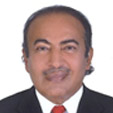 Dr. Sami Alfaraj Dr. Sami Alfaraj
President,
The Kuwait Centre for Strategic Studies,
(Kuwait)
Dr. Sami Alfaraj heads the Kuwait Centre for Strategic Studies, which he established in 1998 as an independent think tank. A former army officer and a strategic planning and crisis management consultant, he has received his education in Kuwait, Cambridge, Oxford universities, as well as at the Fletcher School of Law & Diplomacy.
In January 2018, the Kuwaiti Government adopted the vision “A New Kuwait’ (which was drafted by him) as the official state strategy for the early part of the 21st Century.
|
|
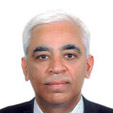
Ambassador Sanjiv Arora
Former Secretary,
Ministry of External Affairs,(India)
Ambassador Sanjiv Arora joined the Indian Foreign Service in 1984 and served in various capacities in New Delhi and abroad during his career spanning 35 years before his superannuation on 31 July, 2019.
Before joining his last posting at the senior most level as Secretary (Consular, Passport & Visa and Overseas Indian Affairs) in Ministry of External Affairs (MEA) in New Delhi in Feb'19, Mr Sanjiv Arora served as Ambassador of India to Lebanon from Dec'16–Feb'19. Earlier, he was Ambassador to Qatar from Aug'12–Oct'16 and Consul General in Houston, Texas, USA from Nov'08–July'12, where his responsibilities covered Texas and eight other States.
Ambassador Arora has served at HQS at every level. He dealt with India-Sri Lanka relations in MEA during 1991-94 and also worked as Counsellor (Political & Press) in High Commission of India in Colombo in 1999–2000.
Mr Arora is among the few IFS officers to have been deputed to Ministry of Finance where he served as Director during 2003–2004 and dealt with Development Cooperation and other issues. Before joining the IFS, Mr Arora worked in the corporate sector and also in the Reserve Bank of India.
As Head of United Nations-Political Division in MEA from 2005-2008, Mr Arora was actively involved in India's foreign policy at the UN, dealing with a wide range of issues including counter terrorism; peacekeeping; UN reform; political issues in UNGA and UNSC, etc. He was involved in the initiative leading to UNGA's unanimous adoption of India's resolution for observance of Mahatma Gandhi's birthday (2 October) as the International Day of Non-Violence. He functioned as the nodal officer for the participation of India's official and non-official delegations to UNGA Sessions from 2005-08. He was also in charge of issues related to the Non-Aligned Movement and the Commonwealth.
During his distinguished career, Ambassador Arora has proactively practiced diplomacy in its various forms and manifestations, including political; security; economic & commercial; energy; multilateral; consular & diaspora; cultural; media; public diplomacy, etc. In particular, Ambassador Arora specialises in Middle Eastern affairs; business & energy issues; multilateral diplomacy; the people-centric area of consular & global diaspora, including mobility & migration; and public diplomacy.
|
|
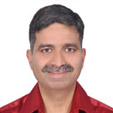
Brig. Ashish Chhibbar
Senior Fellow
Manohar Parrikar Institute for Defence Studies and Analyses
Brig Ashish Chhibbar joined Manohar Parrikar IDSA as Senior Fellow in July 2018. An alumni of National Defence Academy and Defence Services Staff College, he has had varied command and staff tenures in all terrains and operational areas.
The officer has done his ME from Indian Institute of Science, Bangalore and PhD in Strategic Decision Making from Chaudhary Charan Singh University.
His current interests are in disruptive cyber technologies of Blockchain, Artificial Intelligence and Big Data Analysis.
|
|

Dr. Meena Singh Roy
Research Fellow
Manohar Parrikar Institute for Defence Studies and Analyses
Dr Meena Singh Roy is Research Fellow and coordinator of West Asia Centre at the Manohar Parrikar Institute for Defence Studies and Analyses (Manohar Parrikar IDSA). Her areas of specialization are Central Asia and West Asia. Prior to joining Manohar Parrikar IDSA, she was a senior research scholar in the Department of African Studies, Delhi University. She was associated with the Institute of Commonwealth Studies, School of Oriental and African Studies and London School of Economics for her research work. In 2014, she was a visiting Research Fellow with the German Institute of Global and Area Studies’ (GIGA) Institute of Asian Studies.
Dr. Roy has published several peer-reviewed articles and papers focused on West Asia and Central Asia. She has also been involved in net assessment reports and strategic gaming on West Asia and Central Asia.
She has published a monograph titled The Shanghai Cooperation Organization: India Seeking New Role in the Eurasian Regional Mechanism (2014), edited books titled International and Regional Security Dynamics: Indian and Iranian Perspectives (July 2009) and Emerging Trends in West Asia: Regional and Global Implications (2014),and completed the joint Delhi Policy Group-IDSA Task Force report on West Asia in Transition in 2015.
|
|
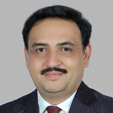
Dr. Adil Rasheed
Research Fellow
Manohar Parrikar Institute for Defence Studies and Analyses
Dr. Adil Rasheed is Research Fellow at the Manohar Parrikar Institute for Defence Studies and Analyses (Manohar Parrikar IDSA) and is author of the book ISIS: Race to Armageddon (2015).
He was earlier Researcher at the UAE’s premier think tank Emirates Center for Strategic Studies and Research (ECSSR) (2006-14), and was Senior Research Fellow at the United Service Institute in New Delhi from 2014-16.
Notable among his peer reviewed papers on counter-radicalization are “Jihadist Radicalisation in India: Internal Challenges, External Threats” and “Countering the Threat of Radicalisation: Theories, Programmes and Challenges” published in IDSA’s Journal of Defence Studies.
Dr Adil Rasheed regularly writes commentaries and articles on geopolitical issues in leading newspapers, magazines, journals and news portals in India and abroad. His book ‘Countering the Jihadist Narrative’ is nearing publication. His next project would study the corresponding trends in Political Islam in Middle East and South Asia.
|
|

Dr. Prasanta Kumar Pradhan
Associate Fellow
Manohar Parrikar Institute for Defence Studies and Analyses
Dr. Prasanta Kumar Pradhan is an Associate Fellow at the Manohar Parrikar Institute for Defence Studies and Analyses (Manohar Parrikar IDSA), New Delhi. He holds a doctorate degree from the School of International Studies, Jawaharlal Nehru University, New Delhi. Since joining IDSA in 2008, he has been researching on foreign policy, security and strategic issues in West Asia, and India’s relationship with West Asia and the wider Arab world. He is also working on the implications of Arab uprisings for the region and India.
Dr. Pradhan is the author of the book Arab Spring and Sectarian Faultlines in West Asia: Bahrain, Yemen and Syria (Pentagon Press, New Delhi, 2017) and the monograph India’s Relationship with the Gulf Cooperation Council: Need to Look beyond Business (IDSA, New Delhi, 2014). He is also the editor of the book Geopolitical Shifts in West Asia: Trends and Implications (Pentagon Press, New Delhi, 2016).
Dr. Pradhan has published several research articles in reputed journals and has contributed chapters to several edited volumes on security and strategic issues in West Asia and India’s bilateral relations with the region. His current research project is titled “The GCC in Crisis: Implications for the Region and India”.
|
|
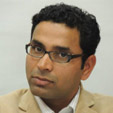
Md. Muddassir Quamar
Associate Fellow
Manohar Parrikar Institute for Defence Studies and Analyses
Md. Muddassir Quamar is Associate Fellow in the Institute for Defence Studies & Analyses, New Delhi. He holds a Ph.D. in Middle East studies from Jawaharlal Nehru University. His doctoral thesis examined social developments in Saudi Arabia between 1991 and 2010 within a conceptual framework of Islamic modernism. Dr. Quamar’s areas of interest include Politics & Societies in the Gulf, Middle East Strategic Affairs, and Political Islam. His research papers have appeared in leading international journals such as Contemporary Arab Affairs, Digest of Middle East Studies, Journal of Arabian Studies and Journal of South Asian and Middle Eastern Studies. He has co-edited an anthology titled Contemporary Persian Gulf: Essays in Honour of Gulshan Dietl, Prakash C. Jain and Girijesh Pant, contributed chapters to edited volumes and regularly contributes opinion articles on strategic developments in Middle East and India-Gulf relations. Dr. Quamar has been a visiting fellow in King Faisal Center for Research and Islamic Studies, Riyadh, and serves as Associate Editor of Contemporary Review of the Middle East (Sage, India) and Book Review Editor of Strategic Analysis.
|